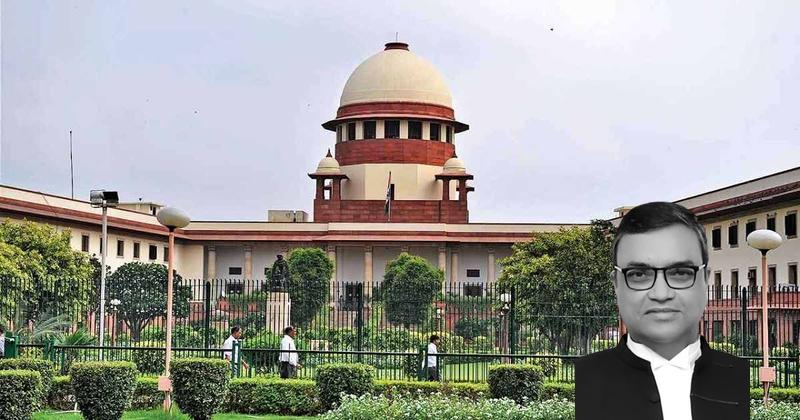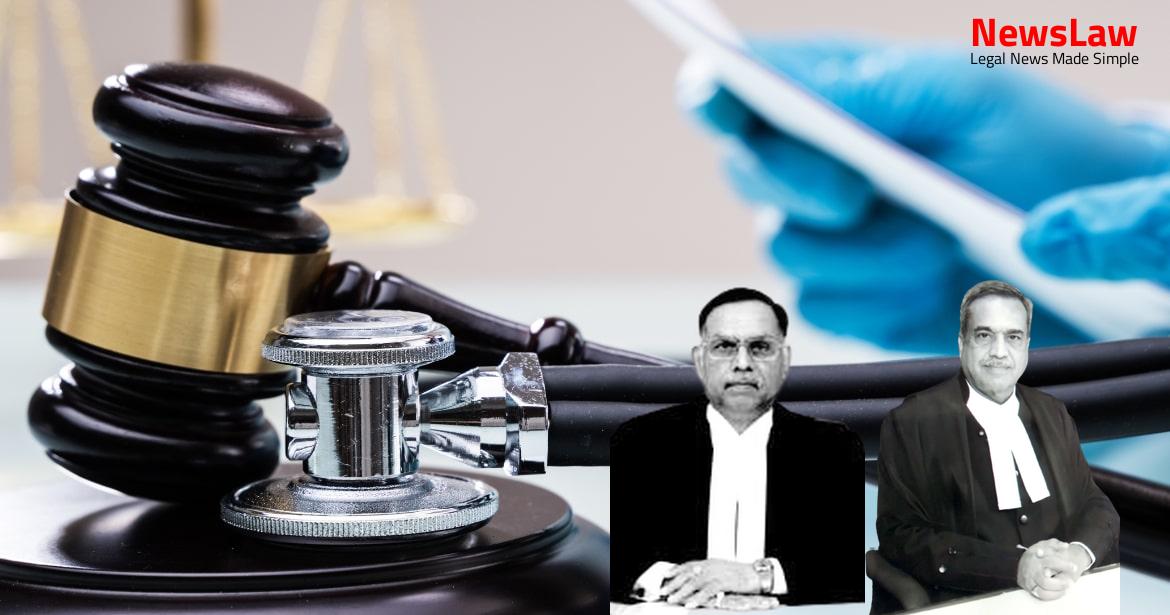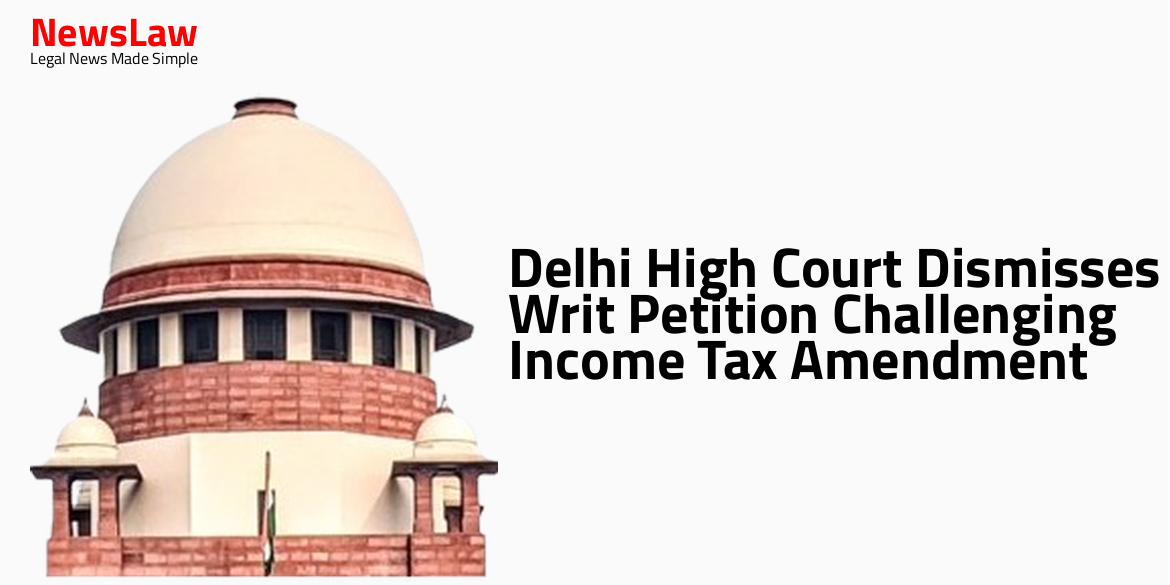Explore the intricate legal analysis by the court regarding the acknowledgment of debt in balance sheets. The analysis delves into the application of the Limitation Act in the context of the Insolvency and Bankruptcy Code (IBC), emphasizing the importance of acknowledgments in balance sheets for extending limitation periods. Discover how balance sheet entries, when signed and approved by the Board of Directors, can serve as an admission of liability, impacting the limitation period for debt recovery actions. Stay tuned for a comprehensive understanding of the legal intricacies involved.
Facts
- SBI issued a loan-recall notice to the corporate debtor on 27.03.2015.
- Appellant took physical possession of project assets under SARFAESI Act on 01.06.2016.
- Appellant issued a notice under Section 13(2) of SARFAESI Act on 20.06.2015 on behalf of consortium lenders to the corporate debtor.
- Corporate Power Ltd. availed loan facilities from various lenders including SBI for setting up a thermal power project in Jharkhand.
- NCLAT in V. Padmakumar case held that the Section 7 application is not barred by limitation.
- Original lenders assigned debts owed to them by corporate debtor to the appellant on 31.03.2015.
- Appellant indicated the date of default on 08.11.2019 through a supplementary affidavit before NCLT.
- Section 7 application was admitted by NCLT on 19.02.2020 based on balance sheets acknowledging the liability of the corporate debtor.
- Appellant filed an application under Section 7 of IBC for a default amounting to Rs. 5997,80,02,973/- from the corporate debtor on 26.12.2018.
- The account of the corporate debtor was declared as a non-performing asset by SBI on 31.07.2013.
- NCLAT initially dismissed the appeal based on limitation period from 28.05.2014.
- The matter was remanded back by the Court for re-examination of limitation.
- A five-member Bench of NCLAT refused to adjudicate the question referred as incompetent.
- The other banks in the consortium also classified the account as non-performing on various dates.
- An order was passed on 25.09.2020 doubting the correctness of the Full Bench’s judgment.
Also Read: Interpretation of Section 43B: Debentures vs. Interest Payment
Arguments
- Shri Mukul Rohatgi, representing the appellant, challenges the judgment of the NCLAT dated 14.10.2020.
- Shri Ramji Srinivasan, representing the appellant, argues that the NCLAT’s majority judgment in V. Padmakumar was in error as it did not consider relevant Supreme Court judgments.
- Shri Srinivasan refers to the application of Section 238A of the IBC and Section 18 of the Limitation Act in proceedings under Section 7 of the IBC.
- The appellant’s application under Section 7 was initially admitted by the NCLT but later set aside by the NCLAT.
- The appellant seeks a remand to the NCLAT for a decision on the point of limitation.
- Different High Court judgments and the provisions of the Limitation Act are discussed in detail in the arguments presented.
- The argument about acknowledgment of liability in balance sheets and the reliance on various judgments for the same are key points in the petition.
- The debate on the constitution of a Bench and the admissibility of written submissions for pleadings are raised by the respective counsel.
- The appellant acknowledges the deficiency in pleading acknowledgment of liability on the facts of the case.
- Despite various legal arguments, an opportunity is given to the appellant to amend its pleadings with certain conditions.
- ARGUMENT: The respondent argued that the balance sheets presented did not constitute an acknowledgment of liability as there were caveats in the auditor’s report.
- DEFENSE: It was contended that the entries in the books of account alone were not sufficient to prove the debt without additional evidence.
- CITATION: Section 34 of the Evidence Act was referenced to support the argument that book entries are not enough to charge a person with liability.
- ILLUSTRATION: The Illustration under Section 34 was quoted to emphasize the need for more than just book entries to establish liability.
- EVIDENCE: The respondent maintained that presenting only books of account and balance sheets to the court was insufficient to prove the debt.
Also Read: Ensuring Transparency in Electoral Processes
Analysis
- The analysis delves into the application of the Limitation Act in the context of the Insolvency and Bankruptcy Code (IBC).
- The Insolvency Law Committee’s report of March 2018 emphasized the need for the Limitation Act to apply to the IBC, aligning with court procedures unless statutorily specified.
- Section 238A of the IBC was introduced to incorporate the provisions of the Limitation Act to proceedings before the Adjudicating Authority, NCLAT, DRT, or Debt Recovery Appellate Tribunal.
- Acknowledgements made in the balance sheets of companies can potentially extend the period of limitation under Section 18 of the Limitation Act.
- It is crucial to establish that an acknowledgement of debt made in writing and signed by the party against whom the right is claimed is a key factor in determining the application of the Limitation Act.
- The analysis also considers how the balance sheet, when signed and approved by the Board of Directors, can serve as an admission of liability, potentially affecting the limitation period for debt recovery actions.
- To validate the balance sheet, it must be duly passed by the shareholders at the appropriate meeting and accompanied by a report made by the Directors.
- The analysis underscores the need to read the balance sheets together with the Directors’ reports to interpret acknowledgements and liabilities correctly.
- Various judgments and legal provisions are referenced to affirm the applicability of the Limitation Act to IBC proceedings, emphasizing the significance of acknowledgements in balance sheets for extending limitation periods.
- In the PRE_RELIED part of the judgment, various legal principles and precedents related to the acknowledgment of debt in balance sheets are discussed.
- The judgments of different High Courts and the Supreme Court are cited to establish the legal position on the acknowledgment of liability in balance sheets.
- It is emphasized that the inclusion of a debt in a balance sheet, even if done as a statutory obligation, can still amount to an acknowledgment of liability and extend the period of limitation.
- The requirement for acknowledgment is that it must be a conscious admission of a present subsisting liability, indicating a jural relationship between the parties.
- The judgment highlights that the acknowledgment need not be explicit and can be inferred from the nature of the admission and surrounding circumstances.
- Various cases where balance sheet entries were considered as valid acknowledgments of debt are referenced to support the legal stance.
- The importance of adherence to established legal principles and precedents, especially in matters of acknowledgment of debt in balance sheets, is underscored.
- Overall, the discussion in this part affirms the significance of balance sheets in extending the period of limitation through acknowledgment of debts.
- Companies are required to maintain books of account and other relevant papers at their registered office and can also keep them at another place in India as decided by the Board of Directors.
- Financial statements must give a true and fair view of the company’s state of affairs, comply with accounting standards, and be in the prescribed form.
- Every company must prepare an annual return containing specific details about the company’s activities and financial status.
- Financial statements are to be approved by the Board of Directors before being signed, and auditor’s and Board’s reports are to be attached to the financial statements.
- Non-compliance with the provisions regarding financial statements can lead to penalties for the company and its officers.
- The Limitation Act, 1963, specifically addresses the effect of acknowledgment in writing on the limitation period for suits or applications.
- The Section 7 application is time barred, and the appellant should not be given the opportunity to renege on this pleading.
- The Calcutta High Court did not err in setting aside the finding due to the time bar.
- The High Court referred to balance sheets but held that they could not extend limitation based on the Babulal case.
- The NCLT had erroneously applied Article 63(a) of the Limitation Act instead of Article 137.
- The pleading that the date of default was the date of the DRT decree was incorrect.
Also Read: Limitations of Court’s Power in Modifying Arbitral Awards
Decision
- The appeal is allowed and remanded to the NCLAT for decision in accordance with the law stated in Civil Appeal No.323 of 2021.
- The appellant is granted the opportunity to amend its pleading upon payment of costs to the respondents within four weeks.
- The NCLAT judgment dated 07.02.2020 is set aside.
- The matter is remanded to the NCLAT for fresh decision based on the law laid down in Civil Appeal No.323 of 2021.
- The present application is allowed.
Case Title: ASSET RECONSTRUCTION COMPANY (INDIA) LIMITED Vs. BISHAL JAISWAL (2021 INSC 254)
Case Number: C.A. No.-000323 / 2021



